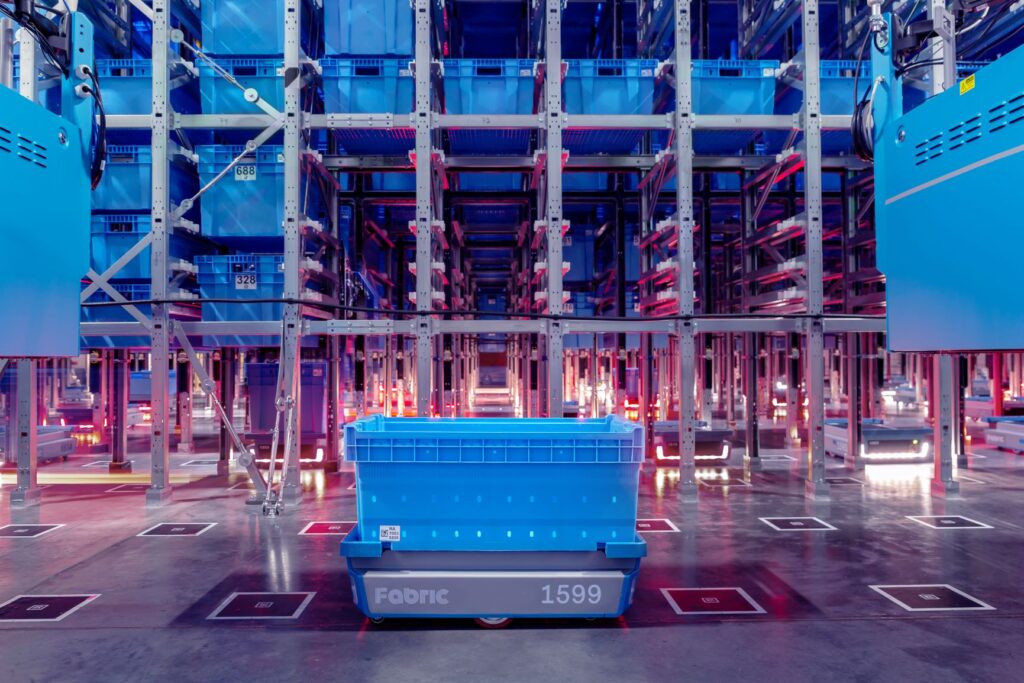Israeli-founded warehouse automation logistics startup Fabric announced on Tuesday that it has closed a $200 million Series C funding round led by existing investor Temasek, with participation from Koch Disruptive Technologies, Union Tech Ventures, Harel Insurance & Finance, Pontifax Global Food, and Agriculture Technology Fund (Pontifax AgTech), Canada Pension Plan Investment Board (CPP Investments), KSH Capital, Princeville Capital, Wharton Equity Ventures, and others.
This makes the company one of Israel’s newest unicorns, a privately-held startup valued at over $1 billion.
“With a valuation of more than $1 billion, Fabric has established itself as a market leader in the on-demand fulfillment space, leveraging its proprietary robotic micro-fulfillment technology stack designed from the ground up to make on-demand fulfillment profitable and scalable for all retailers. It has never been so complex and challenging for retailers to fulfill and deliver online orders, and with these funds, Fabric has emerged as a new kind of unicorn — a ‘robocorn’ uniquely positioned to solve these challenges in the retail space,” the company said in an announcement on their website.
Fabric developed micro-fulfillment centers as a logistics solution to combat the challenge of slow and expensive manual fulfillment centers and meet the expectations of e-commerce customers. The New York-based company, which raised $110 million in a Series B round in late 2019, provides two kinds of solutions. In the grocery sector, the company offers retailers the opportunity to convert parts of their store into such a micro-fulfillment center where online orders would be packed by robots. The centers, which would be operated by both robots and humans, would also be responsible for scheduling orders and delivering them within minutes. The second aspect is to create multi-tenant locations in urban centers that make on-demand fulfillment profitable for eCommerce sellers locating automation physically close to end customers. The company has raised $336 million to date.
Fabric runs micro-fulfillment operations for grocery and general merchandise retailers in New York City, Washington, DC, and Tel Aviv. Just recently, Fabric announced major partnerships with Walmart, Instacart, and FreshDirect.
With these funds, Fabric said will expand its on-demand fulfillment platform across the general merchandise market and build a network of micro-fulfillment centers across major metro areas in the United States to make fast delivery scalable and profitable for retailers. Fabric will support this stage of hypergrowth by also heavily recruiting for its world-class technology, commercial, and operations teams in Israel and across the United States. Fabric now has a global team of over 300 team members with offices in New York City, Tel Aviv, and Atlanta.
“At the center of this perfect storm of e-commerce is Fabric and our ability to enable on-demand retail at profitable unit economics,” said Elram Goren, Fabric CEO and co-founder. “While we use the term ‘robocorn’ a bit tongue in cheek, we see this milestone as a real turning point in the industry, from what was once trepid exploration of micro-fulfillment to total market validation and now rapid expansion. We’re thankful to our partners for trusting us to serve them and to our incredible team who will continue moving mountains to make our vision a reality. This is still ‘day one’ for us, and we’re extremely excited about the road ahead as we expand our offering into new markets, drive more efficiencies across the supply chain, and focus on scaling.”
“We believe the movement to local fulfillment presents an opportunity to make retail and e-commerce more sustainable, and we’re thrilled to partner with the leader in micro-fulfillment to make this vision a reality,” said Eric Kosmowski, managing partner at the Princeville Climate Technology Fund. “By leveraging existing real estate with a small footprint in close proximity to end consumers, utilizing more sustainable packing materials, and minimizing shrink and waste through smart inventory management, Fabric’s micro-fulfillment centers could lower last-mile emissions significantly.”
Related posts

Israeli AI Safety Tool Among TIME’S Best Inventions For 2024

Editors’ & Readers’ Choice: 10 Favorite NoCamels Articles

TAU Team Discovers Mechanism To Eliminate Cancerous Tumors




Facebook comments